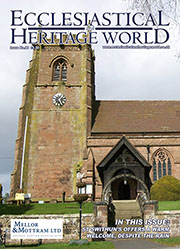Restoring historic roofs with handmade clay tiles
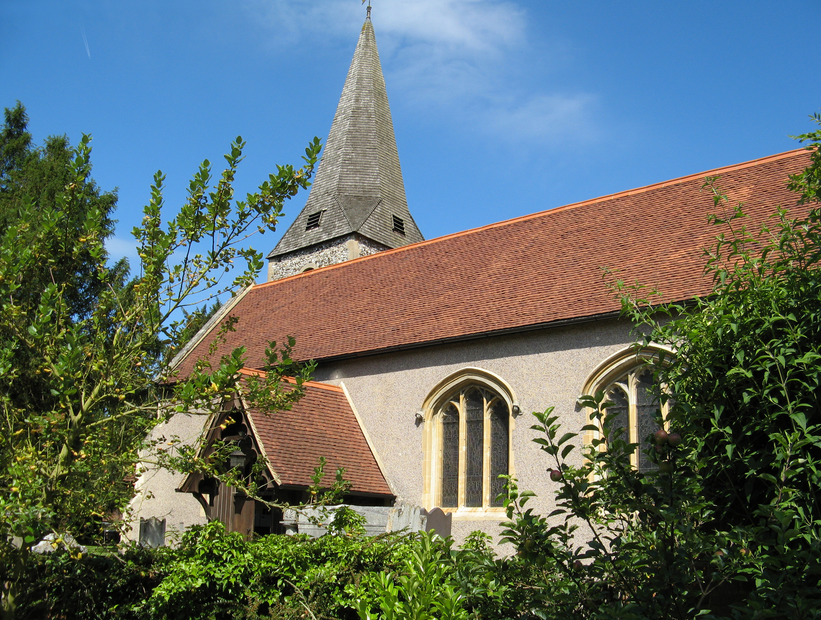 A naturally aged roofscape made from handmade clay roof tiles can be visually stunning. With no two tiles the same, each roof has a character of its own.
A naturally aged roofscape made from handmade clay roof tiles can be visually stunning. With no two tiles the same, each roof has a character of its own.
However, the characterful roofs found on old churches and other heritage properties deteriorate over time and may need repairing or replacing entirely, so it is important to choose high quality, historically authentic clay plain or peg tiles that will match the architecture of the building and help restore the roof to all of its former beauty.
Furthermore, planning regulations will often insist on the use of like-for-like or, at the very least, visually sympathetic materials and workmanship.
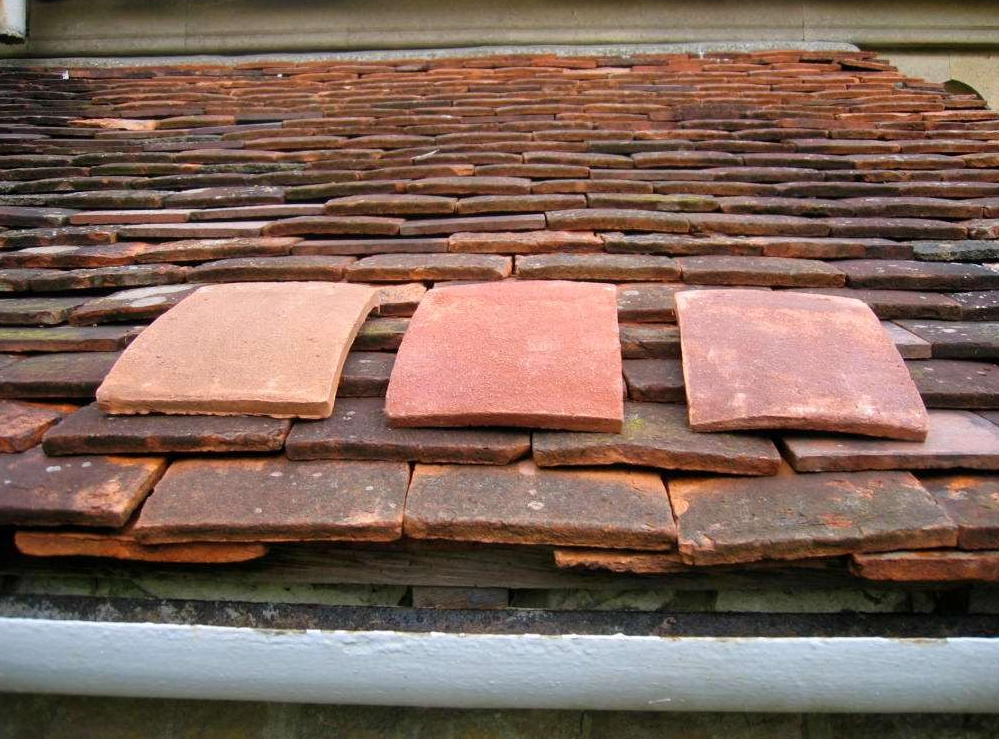 Peg tiles of the past
Peg tiles of the past
Back in the 12th and 13th centuries, handmade clay peg tiles were a popular feature of historic country houses, barns, farm buildings and churches across the South East of England.
Named after the wooden pegs by which they were originally attached to the timber laths or battens, their distinctive appearance was characterised by their variation in texture, camber and colour. In those days, every town and village would have had its own kiln and tile-maker and, depending on the local clay, the firing temperature and the skill of the local or travelling tile maker, the colours could range from pale orange to a dark red.
By the mid nineteenth century peg tiles had evolved into the ‘plain’ clay tiles with nibs (or projections) on the underside of the top edge for hooking onto the timber battens. They were also slightly (3/8 - 1/2 inch) longer and wider.
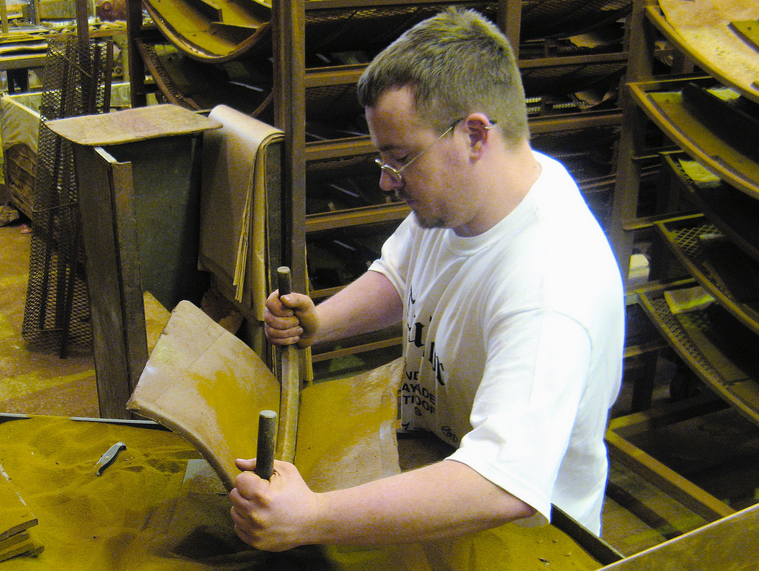 Historical authenticity
Historical authenticity
When restoring a period or listed property, it is important to look for handmade peg and plain tiles with a truly time weathered and ‘olde world’ look consistent with the originals.
Genuine handmade tiles have an appearance, which is well suited to period properties, and cannot be replicated by cheaper, more uniform machine made tiles.
Furthermore, second hand reclaim tiles are often in short supply and expensive to source, so new handmade peg and plain tiles can offer a perfectly compatible and cost effective alternative - particularly when replacing large areas of roof.
Tudor Roof Tiles takes particular care to produce peg and plain tiles in natural mellow tones, with variable textures and gently undulating cambers, which replicate the quirky, idiosyncratic character of older roofs.
In order to achieve this, the company combines age-old, traditional skills and craftsmanship with modern firing techniques. This produces characterful sand-faced tiles that not only have an individual and instant-aged, faded rustic look, but also meet today’s performance standards.
They are available with square or round peg holes or with nibs on the underside, making them suitable for both ancient and modern building methods as appropriate.
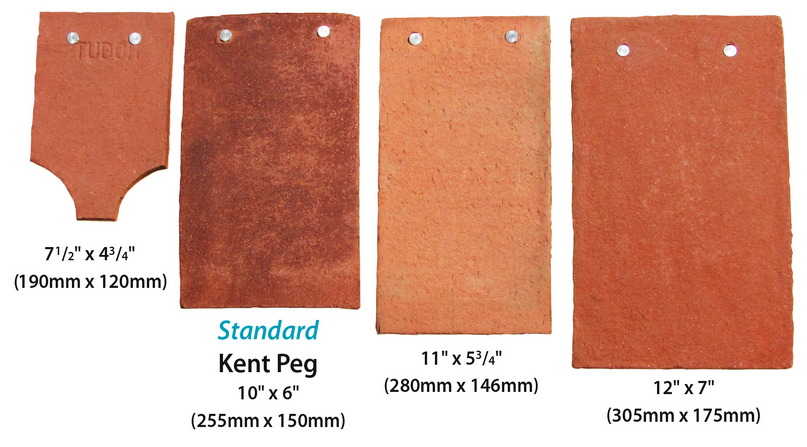 Non-standard sizes
Non-standard sizes
As planners in conservation areas often insist on ‘like for like’ handmade replacements, it is important not only to pay attention to the tone and texture of the clay roof tiles, but also their historic sizing.
Regular 10” x 6” (255mm x 150mm) sizes are very much a modern phenomenon. The reality is that, despite the Royal Charter of 1477 decreeing that peg tiles should be 10½” x 6¼”, historic plain and peg tiles continued to vary across the country.
When restoring a roof, it is important to realise that even the slightest change from the original size can damage the overall appearance. For this reason Tudor offers bespoke sizes, which also help architects and conservationists replicate and preserve the character of the original roofs.
Located on Romney Marsh in Kent, Tudor Roof Tiles is one of the last remaining independent English manufacturers of traditional handmade clay roof tiles. Over the years, its typically English peg and plain tiles have been used in numerous barn and oast conversions, Grade II listed properties, churches and historic town centres as well as residential homes located in conservation areas.
For more information about how Tudor’s range of handmade peg and plain clay tiles can help restore your roof, why not download Restoring Historic Roofs.
Tudor roof tiles are available from leading roofing and builders merchants.
For more information, contact Tudor Roof Tile Co. Ltd, Dengemarsh Road, Lydd, Kent, TN29 9JH.
Tel: 01797 320202
Fax 01797 320700
E-mail: This email address is being protected from spambots. You need JavaScript enabled to view it.
Website: www.tudorrooftiles.co.uk











